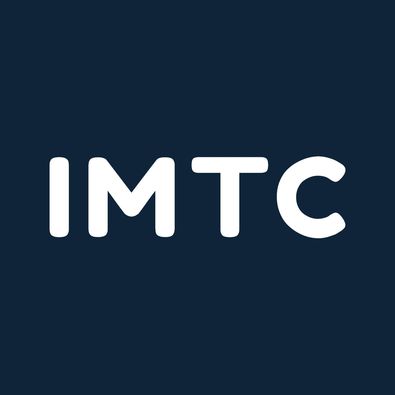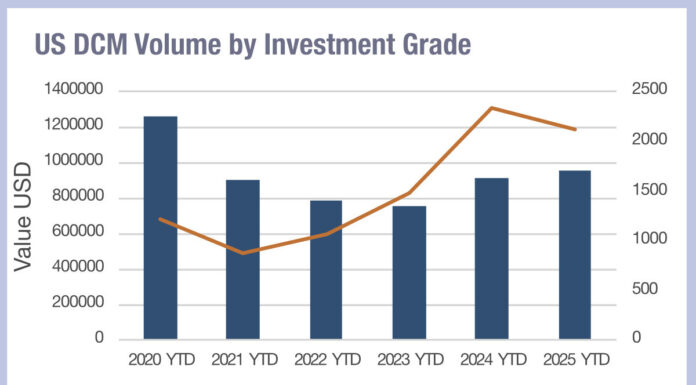Technology & The Future of Fixed Income: How embracing new technology is critical to staying relevant in fixed income investment management

By Russell Feldman, Chief Operating Officer, IMTC.
Fact: Traditional platforms for managing fixed income portfolios are not meeting the needs of today’s fixed income managers. These platforms rely on outdated technology that is cumbersome and inflexible, so processes that should be simple and automated require too much manual intervention and take far too long.
The result: At a minimum, fixed income asset managers are missing out on opportunities. In the worst case, they are making costly mistakes.
Given the fierce competitive pressures on fixed income management firms today, offering strategies and solutions that are cost-effective yet personalized for each client is essential. We believe the key to increasing capacity to manage more assets with greater efficiency is technology – without it, firms simply cannot compete.
In this article, I first describe how technology is changing the status quo. Then, I offer some insider’s advice on evaluating technology vendors. Lastly, I point out some non-negotiables when investing in new technology that ensures firms are setting themselves up for the future.
Technology is changing the status quo
Competition from low-cost, passive investment vehicles is driving fees down across the industry. The drive to maintain profitability with lower fees is leading to consolidation as firms seek economies of scale and to offer new solutions for clients. Given that the status quo is changing, firms need technology that enables the right kind of change.
When investing in new technology, firms should consider the amount of growth it enables in areas such as:
- Asset growth with improved profitability: Cost-cutting can only go so far – you need to increase AUM without increasing costs at the same clip. Does your technology allow you to handle more accounts (i.e., lowering account minimums) with the same headcount?
- New products and strategies: The right technology platform helps active fixed income managers develop and manage new strategies. Since active management can cost up to 8x more than its passive counterpart, it’s important to be able to scale processes.
- Customization at scale: Tailoring solutions for each client is a value-added alternative to low-cost beta investing. The right platform should allow you to customize individual portfolios easily.
- Winning more business: A strong fixed income technology platform helps a firm to differentiate its capabilities from the competition. Are you able to demonstrate your professionalism and the extent of your portfolio management capabilities better than your competitors?
Evaluating how fixed income technology enables growth
Many firms only consider how technology improves portfolio performance without considering if it enables firm growth. A vendor with both strong fixed income knowledge and technology know-how can help you scale by addressing the most time-consuming workflows and providing a faster way to:
- Identify portfolios for start-of-day workflows: Portfolio managers should be able to easily find which accounts require attention, without waiting for physical reports (PDFs, spreadsheets, etc.) to be emailed or posted after the trading day commences.
- Optimize portfolios: A platform should provide ideal investment recommendations based on virtually any criteria, drawing from active inventories and live offerings so recommendations are executable and aligned with compliance and IPSs.
- Equitably allocate trades: Lowering account minimums can increase AUM but risks neglecting smaller accounts while managers focus their limited time on larger portfolios. Technology should enable you to allocate a bond across accounts such that each account receives the optimal allocation to increase yields and reduce non-compliance.
- Assess pre-trade compliance: Discovering compliance violations post-trade can be costly. PMs need the visibility into whether a trade adheres to IPSs with automatic pre-trade compliance checks to prevent mistakes.
- Integrate portfolio and order management processes: Portfolio managers need to move from idea generation to execution as fast as possible, which requires integration of portfolio and order management functions. Not to mention, mistakes are more likely when workflows are siloed across various systems.
A common thread connecting all these features is automation. Technology platforms should automate time-consuming tasks so portfolio managers can focus on where they add the most value – making investment decisions.
Non-negotiables in a new technology platform
If you’re investing in new technology, you need to future-proof your business. Ensure your new vendors have a strong handle on the aspects that can make technology simple instead of adding a bigger strain on your organization. You should consider if your vendors have:
- Cloud technology: A cloud-based platform reduces infrastructure costs and IT resource needs, is easy to scale, and when implemented properly, offers superior cybersecurity. In addition, a vendor that maintains cutting-edge technology is more likely to innovate.
- Data and platform integration: Fixed income data requirements are complex – modern technology greatly reduces the challenge of sharing information across systems. A vendor with expertise in fixed income and enterprise technology knows how to integrate disparate data sources into one platform.
- Seamless, effective implementation: You need a vendor whose approach to implementation encompasses more than the technical work connecting you to the platform. A consultative approach ensures you can use your technology in a way that fits with your existing workflows and systems.
- Ease-of-use and strong client support: A modern, intuitive user interface makes using technology so much simpler – you won’t need to constantly call a help desk. Also, any vendor should provide you with dedicated representatives for custom training and consultation on more efficient investment workflows and new releases.
- No strain from supporting multiple versions: Legacy platform providers typically support many iterations of their software, which dilutes resources. Hosting one cloud-based version means new functionality can be released to end users more quickly.
In conclusion, given the consolidation, competition, and fee compression in the fixed income investment management arena, firms must embrace technology to become more efficient and stay relevant. At IMTC, our clients’ growth is the source of our growth. With our expertise, we rely on the game-changing technology we know so well to build capabilities curated for our clients.
Want to read more on this topic? You can download the full, 28-page report from IMTC or see how IMTC helps fixed income managers to streamline and automate fixed income workflows.

©Markets Media Europe 2025












